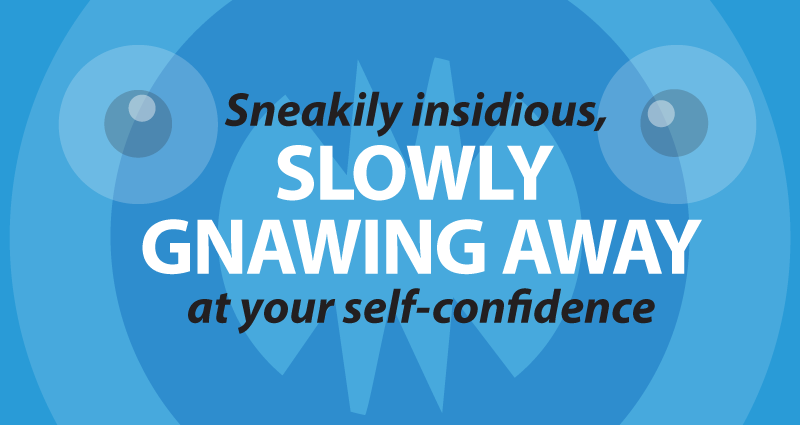
Dumping the Doubt Monster
It’s back there, sneaking around and lurking in the back of your head. Playing on your fears. Whispering in your ear why you shouldn’t do this, why that isn’t going to work, that no one cares what you do (except when you <inevitably> screw things up).
It’s the Doubt Monster! Sneaky, insidious and ever-present, slowly gnawing away at your self-confidence and eating your self-worth until you become too timid to try anything new.
It’s a monster that always seems to be there, lurking in the shadows. So what can you do when it refuses to go away?
First of all, keep in mind that you’re not alone. Even the most confident people have their moments of giving in to the Doubt Monster’s tricks.
We can’t do that. We aren’t big enough.
Too few people. Too little budget. A lack of resources is the bane of any marketer that has all the responsibilities without the resources needed to do what needs to be done.
But is it actually a case of too-small thinking, or is no one thinking big enough?
Do your research. Pull together results. Figure out what’s working and do more of that. Figure out what’s not working and drop it. Start breaking big ideas down into digestible chunks, so that you can feed them to those above you in the food chain. Make a plan, get them excited, and you might be amazed at what you can get done, no matter what size you are.
That’s not my job title.
Marketers are always coming up with great ideas, so why wouldn’t they get involved in product development or improving the member experience?
Who says that a personal or signature loan can’t be relabeled and marketing as a moped loan? What if you had a round-up program attached to your debit and credit cards that applied those pennies to paying off student loans? When a member is first starting to think about a new house, can your app set up a quick free chat with a financial advisor?
Job titles are just titles. It’s up to you to write the description. Get out of your silo, get nosy, and get involved.
But that’s how we’ve always done it.
Tradition is easy to follow, because it requires little or no thinking about the process. But when that process negatively affects members, it is your responsibility to make it better.
A member can get approved for a mortgage online in five minutes. Why do you still need that 5 page paper application and two weeks? (And yes, the loan application process definitely is your job.)
But it’s against the rules.
Your Compliance Officer is paid to know the rules, but sometimes their training doesn’t leave room for nuance. For example, NCUA logos don’t really have to be so big that you can read the small type – you can simply print the type by itself or next to a (much smaller) logo. Disclosures don’t have to include every remote possibility and take up half a page – they just have to be clear enough that you aren’t deceiving anyone.
Do your research, and make sure you know the rules yourself so you can question the rules that only get in the way. Sure, your Compliance Officer is just trying to avoid every risk, but vast clouds of fine print create a different risk by damaging effectiveness. You have to find the right balance.
But I don’t know how.
No one is born knowing how to write a blog article, build a website, rebuild a brand, design a digital marketing campaign, or run a credit union marketing department. Just because you’re out of school doesn’t mean you stop learning. Don’t be afraid to work with experts – sure, you’ll get the benefit of a much wider range of expertise, but you’ll also learn a lot and leverage your time.
- It’s hard not to get caught up in a buzz that surrounds you. - April 9, 2024
- Turn your staff into an Idea Factory. - February 27, 2024
- Move with the future or get left behind - February 6, 2024
